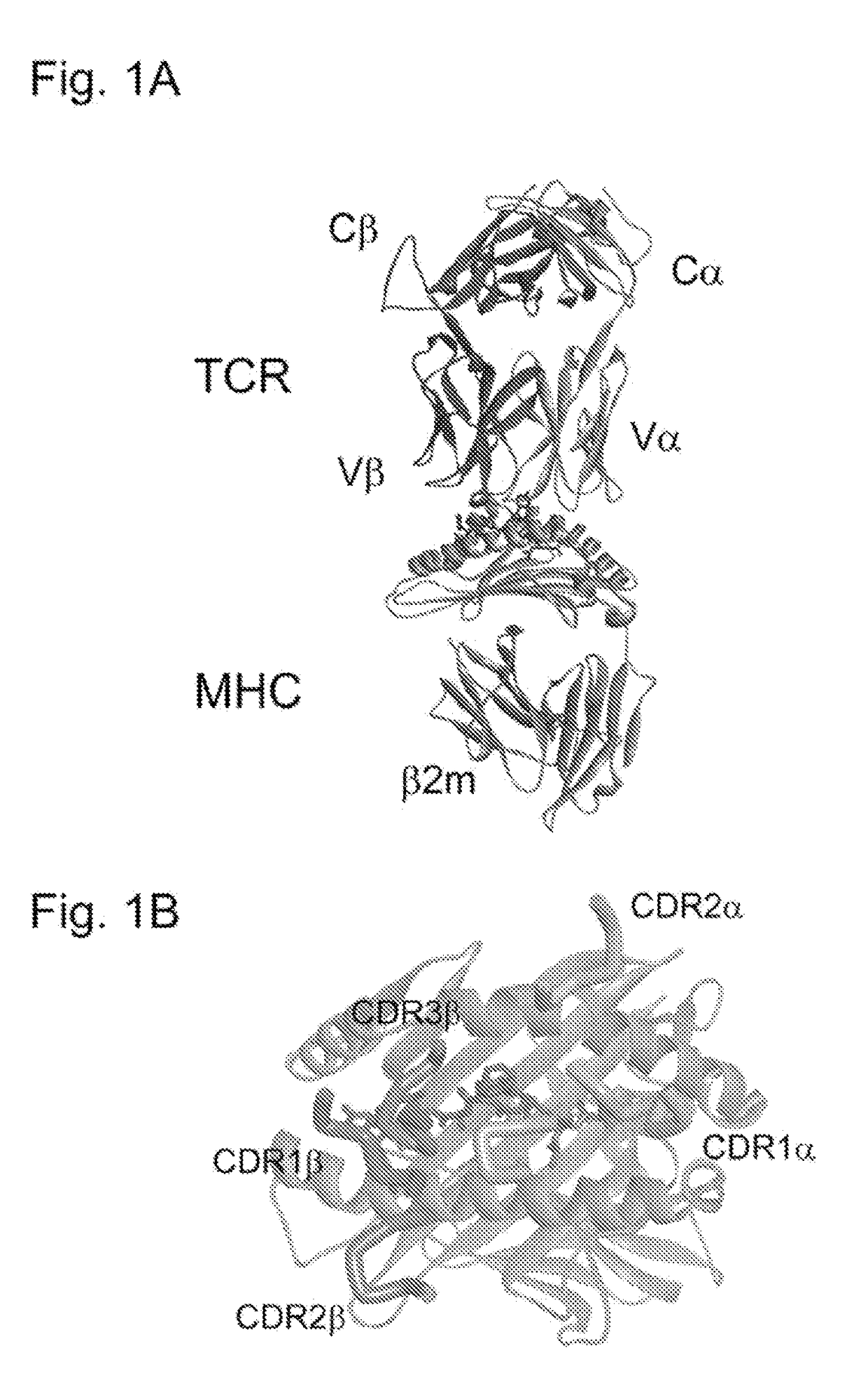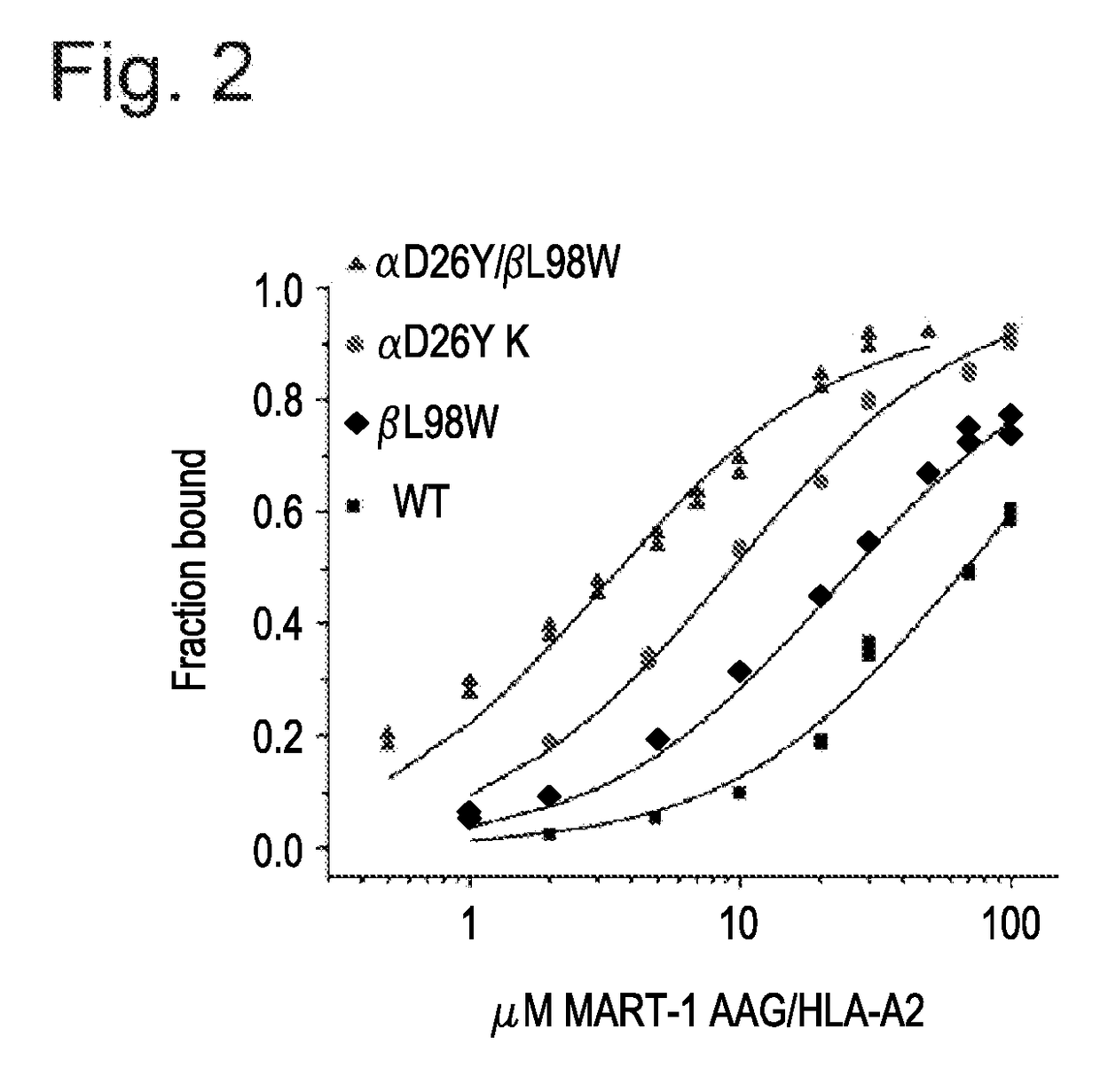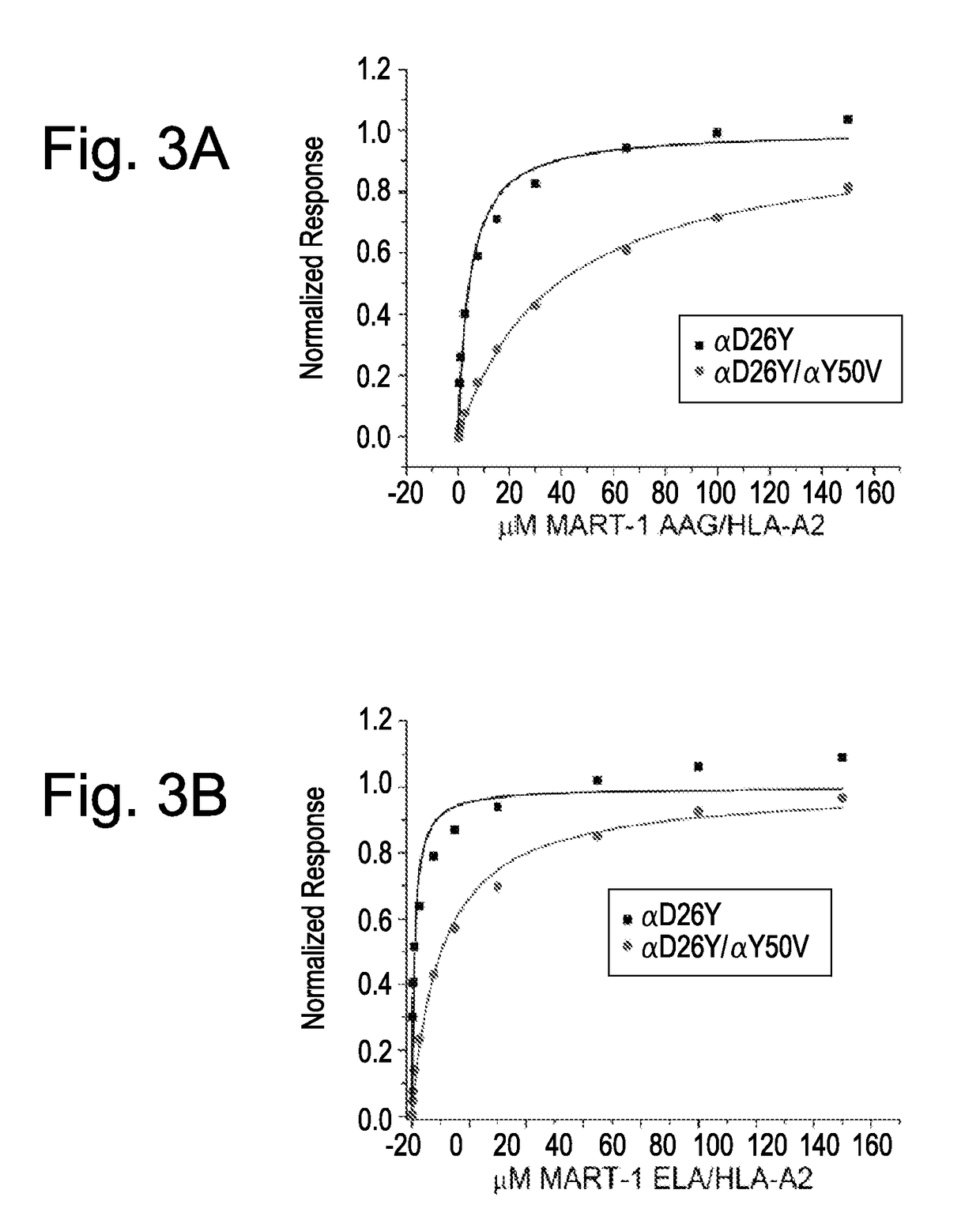Molecular constructs and uses thereof
a technology of tcell receptors and constructs, which is applied in the direction of peptides, peptides/protein ingredients, peptides, etc., can solve the problems of non-specific binding and cross-reactivity of tcr, and achieve the effects of reducing off-target recognition, increasing specificity, and reducing cross-reactivity
- Summary
- Abstract
- Description
- Claims
- Application Information
AI Technical Summary
Benefits of technology
Problems solved by technology
Method used
Image
Examples
example 1
the Molecular Constructs for Modified TCRs
[0083]Template DNA for DMF5 TCR α-chain and DMF5 TCR β-chain was inserted into separate pGMT7 vectors using NdeI and HindIII restriction sites. The DMF5 TCR was previously cloned from a melanoma patient and used in a clinical trial testing adoptive T cell transfer in melanoma (PMID: 17056587; PMID: 21795600; PMID: 19451549) and its α and β chains are comprised of the following gene segments: alpha chain TRAY 12-2*01, TRAJ23*02; beta chain TRBV6-4*01, TRBJ1-1*01. Primers for the mutation within one of the complimentarity determining regions (CDR), specifically the CDR2 loop, to enhance the interaction with the MART-1 peptide and for the mutation within the CDR2 loop to weaken the interaction with the HLA-A2 protein were created utilizing IDT Oligo Tools and Agilent Quick-Change primer design tools online (Table 1).
TABLE 1SEQ.ChainModificationBindingSequenceID. NO.α-chainD26YMART-IForward: 5′ GAATTGTACCTACAGTTATCGCGGTAGCCAGTC 3′12Reverse: 5′ G...
example 2
n and Purification of the Modified TCRs
[0085]The polypeptides encoding the modified TCR α- and β-chains, the HLA-A2 heavy chain, and β2-microglobulin (β2m) were generated in Escherichia coli as inclusion bodies, which were isolated and denatured in 8 M urea. TCR α- and β-chains were diluted in TCR folding buffer (50 mM Tris (pH 8), 2 mM EDTA, 2.5 M urea, 9.6 mM cysteamine, 5.5 mM cystamine, 0.2 mM PMSF) at a 1:1 ratio. HLA-A2 and 132m were diluted in MHC folding buffer (100 mM Tris (pH 8), 2 mM EDTA, 400 mM L-arginine, 6.3 mM cysteamine, 3.7 mM cystamine, 0.2 mM PMSF) at a 1:1 ratio in the presence of excess peptide. TCR and pMHC complexes were incubated for 24 h at 4° C. Afterward, complexes were desalted by dialysis at 4° C. and room temperature respectively, then purified by anion exchange followed by size-exclusion chromatography. Absorptions at 280 nm were measured spectroscopically and concentrations determined with appropriate extinction coefficients.
example 3
Measurements for Enhanced Affinity Modified TCRs—“Affinity Enhancing” Modifications / Motifs to TCR
[0086]The present example demonstrates the utility of the present invention for providing T-cell receptors having improved affinity binding properties for a target antigen. By way of example, improved binding affinity is imparted to a TCR by modification of a CDR region to include a substitution or other modification, particularly within a CDR2 region, within the α chain, β chain, or both α and β chains.
[0087]Surface plasmon resonance experiments were performed with a Biacore 3000 instrument using CM5 sensor chips. In all studies, TCR was immobilized to the sensor chip via standard amine coupling and pMHC complex was injected as an analyte. All samples were thoroughly dialyzed in HBS-EP buffer (20 mM HEPES (pH 7.4), 150 mM NaCl, 0.005% Nonidet P-20)), then degassed for at least 15 minutes prior to use. Steady-state experiments were performed with TCRs coupled onto the sensor chip at 1000...
PUM
| Property | Measurement | Unit |
|---|---|---|
| Affinity | aaaaa | aaaaa |
Abstract
Description
Claims
Application Information
 Login to View More
Login to View More - R&D
- Intellectual Property
- Life Sciences
- Materials
- Tech Scout
- Unparalleled Data Quality
- Higher Quality Content
- 60% Fewer Hallucinations
Browse by: Latest US Patents, China's latest patents, Technical Efficacy Thesaurus, Application Domain, Technology Topic, Popular Technical Reports.
© 2025 PatSnap. All rights reserved.Legal|Privacy policy|Modern Slavery Act Transparency Statement|Sitemap|About US| Contact US: help@patsnap.com



